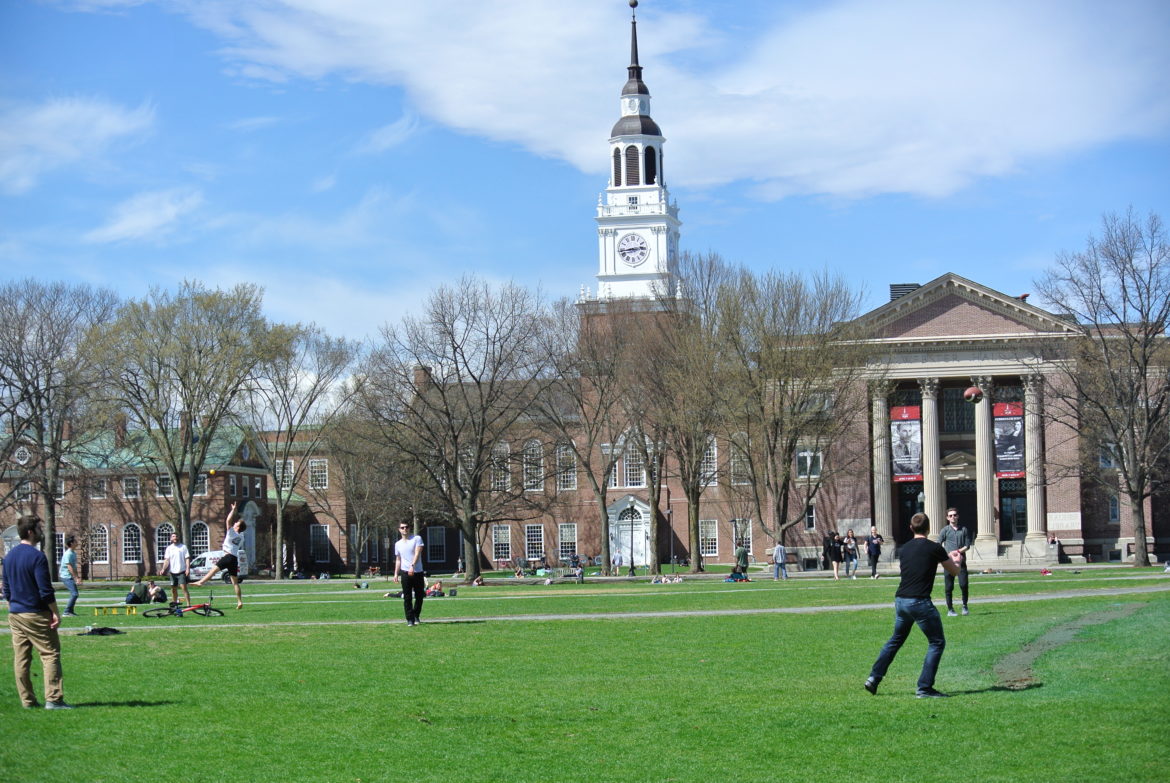By DAMIEN FISHER, InDepthNH.org
CONCORD – A federal judge gave final approval on Friday to the $14 million settlement in the Dartmouth College sexual harassment class action lawsuit.
In issuing the final order on the settlement, Judge Landya McCafferty ruled that $4.9 million of the settlement fund will go to the plaintiffs’ attorneys, and another $235,000 will go toward various litigation expenses. There will also be money for the New Hampshire Coalition Against Domestic and Sexual Violence. In total, the approved settlement leaves each of the more than 80 members of the class action to receive $75,000 a piece.
“The Court also finds that the parties’ settlement, on the terms and conditions set forth in the Agreement, is in all respects fundamentally fair, reasonable, adequate, and in the best interests of the Settlement Class Members,” McCafferty wrote.
Dartmouth spokesman Diana Lawrence said, “We are in the process of reviewing the order and are gratified by the quick turnaround on the decision by the judge. We look forward to working with the plaintiffs to ensure that our Campus Climate and Culture Initiative (C3I) is successful.”
The original lawsuit sought $70 million from the college after several women brought forward claims of harassment and assault against three professors. The lawsuit plaintiffs are identified as Kristina Rapuano, Vassiki Chauhan, Sasha Brietzke, Annemarie Brown, Andrea Courtney, Marissa Evans, as well as Jane Doe, Jane Doe 2 and Jane Doe 3, though there are more women in the class action.
They were students in the department of psychological and brain science led by former professors Todd Heatherton, William Kelley and Paul Whalen. The lawsuit claimed that college facilitated the abuse by looking the other way and allowing for a culture of drinking, rape and sexual harassment for years in the department.
According to the lawsuit, Heatherton, William and Whalen “leered at, groped, sexted, intoxicated and even raped female students,” the complaint said. They allegedly held lab meetings in bars and invited undergraduates to use cocaine as part of a demonstration of addiction.
If students declined to participate, the complaint said the professors withheld academic advising and support. Two students said in the complaint that two of the professors pressured them to drink to excess, and then sexually assaulted them. The complaint says the students were profoundly affected by the harassment and assaults, both in terms of their careers and their mental health.
The settlement releases the college and its administrators from liability, but the three professors may still face legal consequences, according to McCafferty.
“The Release does not extend to claims or potential claims that any Releasing Party may possess against the Three Professors, provided that such claims may proceed only against the Three Professors personally, and any potential liability that the Released Parties may have had, or arguably had, individually or jointly and severally, for such conduct is released,” McCafferty wrote.
According to court records, six of the members of the identified class opted out of the settlement, meaning they are free to pursue action against the school or the professors.





